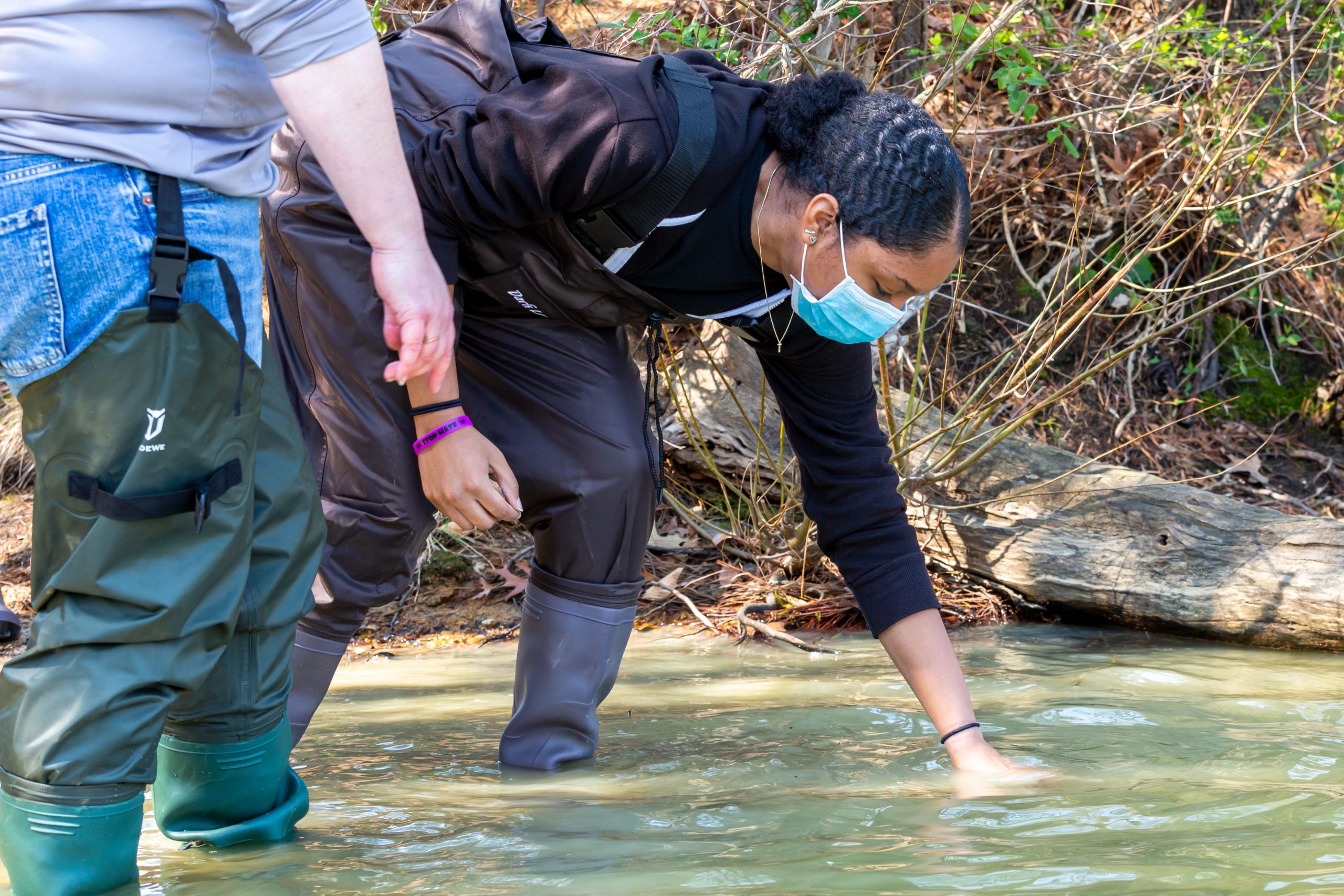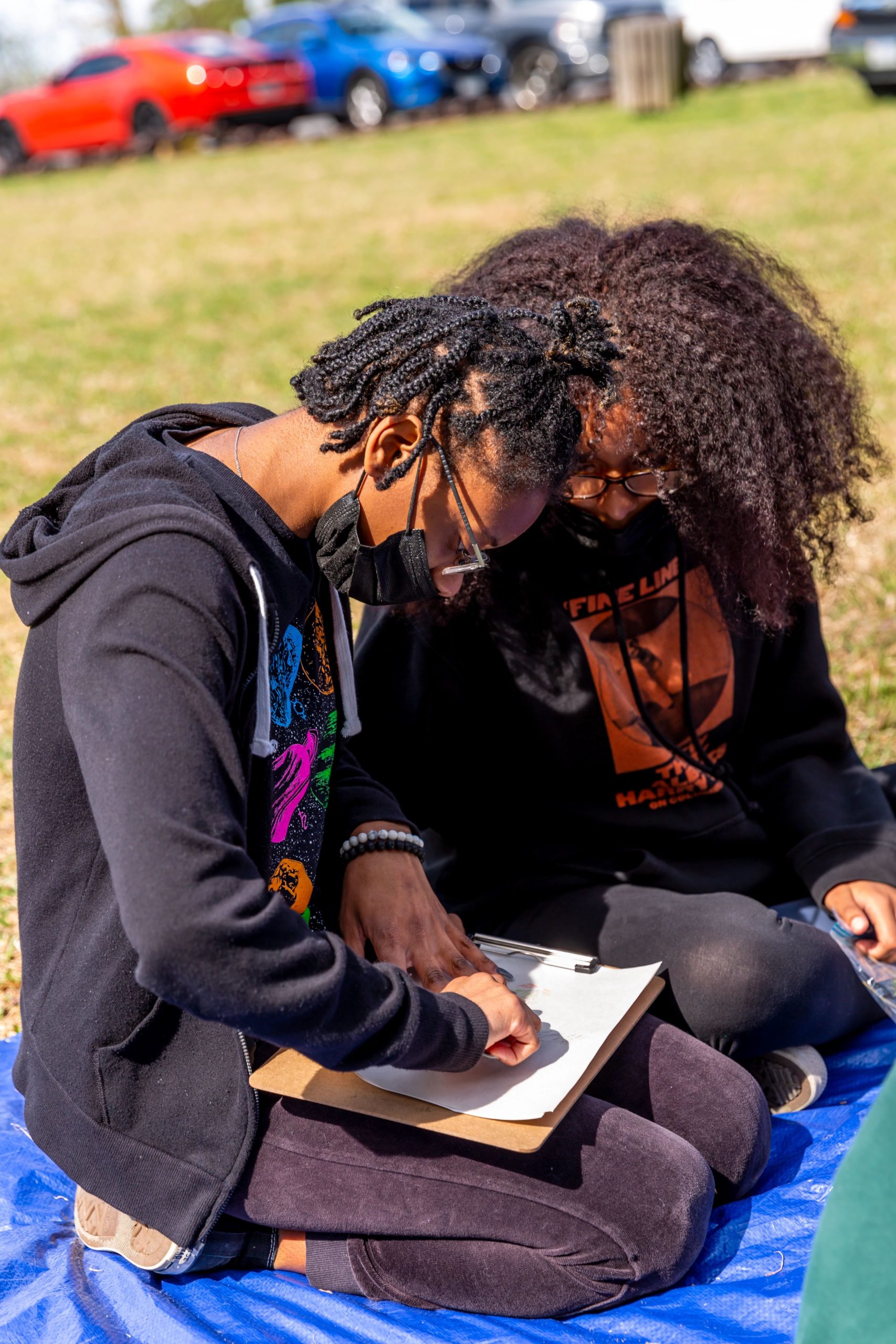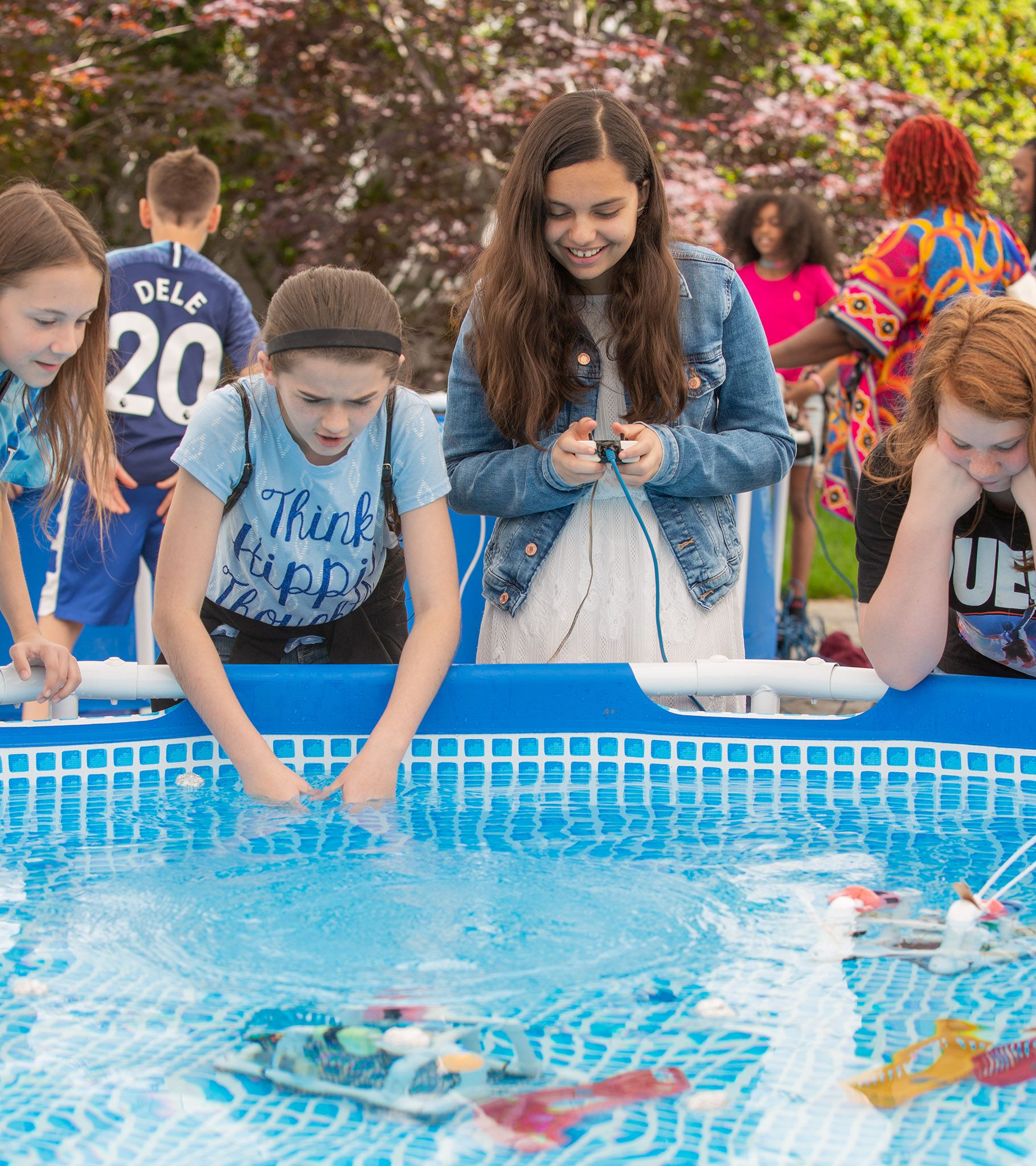Celebrating World Environment Day with B-WET
If you’ve been hiking or picnicking around Mariners’ Park, you may have noticed it’s sweltering! While walking around Lions Bridge, you may have also noticed a sign that points out a planting site at the shores of Mariners’ Lake.
As a recent blog from our Environmental Educator Shantelle Landry explains, we just finished our first exciting year of the NOAA-funded B-WET (Bay Watershed Education and Training) program. The B-WET program is building up to be a district-wide MWEE (meaningful watershed educational experience) for our local Newport News 9th graders. We also work with many community partners including Old Dominion University, Christopher Newport University, James River Association, and NOAA’s Monitor National Marine Sanctuary.
The goal of the B-WET program is to have students grow native grasses (Vallisneria americana) in the classroom and plant those grasses in Mariners’ Lake to help sustain the health of the Lake. During the year, students also learn about local Chesapeake Bay environmental issues and solutions, eventually leading to the creation of a hands-on action project to address a problem in our community. It’s our hope that through this experience, our students will feel empowered to be the next generation of environmental stewards.
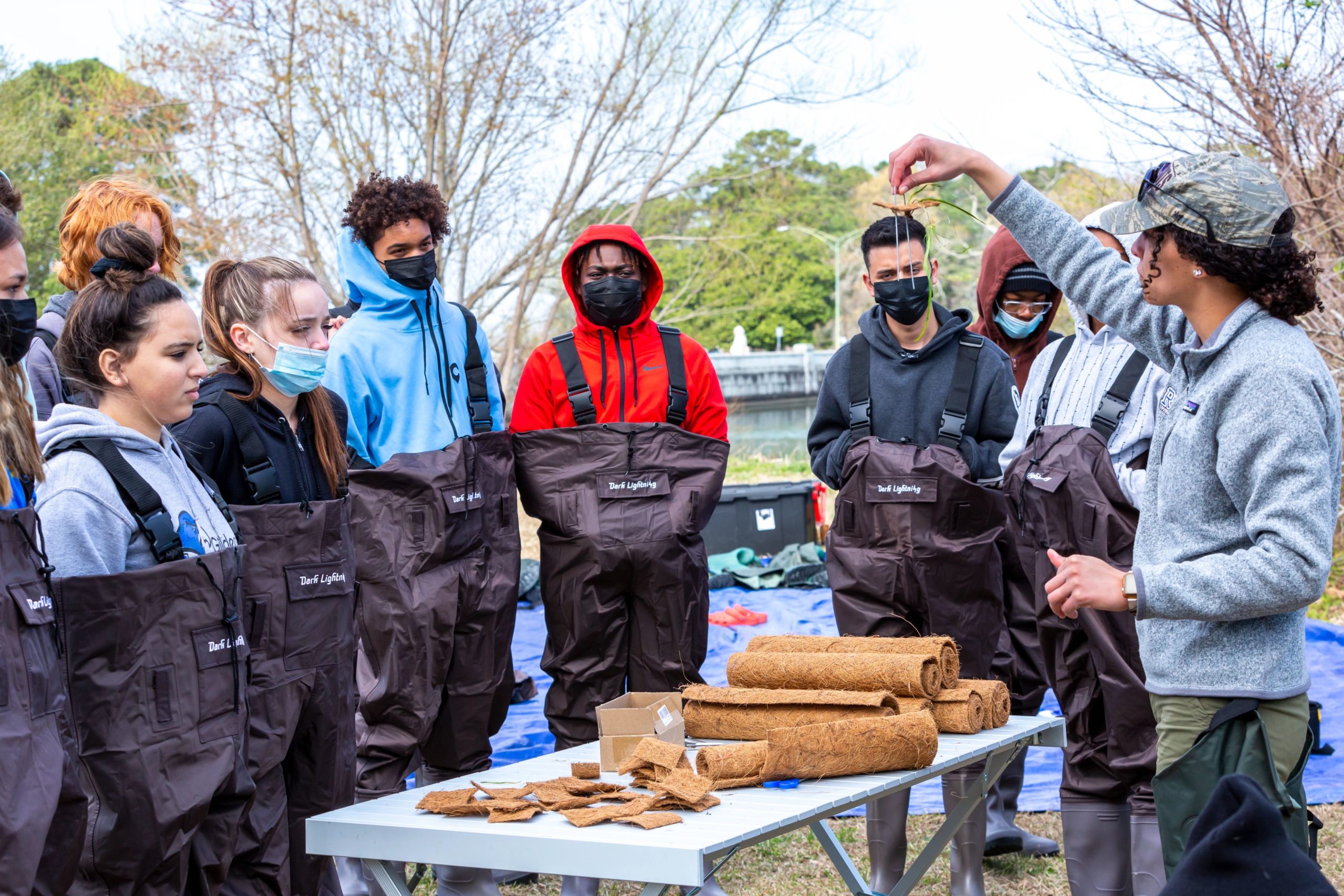
I mention this, in honor of World Environment Day (June 5), to alert readers of the fact that our students, in the B-WET program and beyond, will not only be our next generation of stewards, but will also be inheriting our one and only home–earth. As we know, our planet has been in a global warming trend for a while now. Earth and its ecosystems are fragile, and every year we test that fragility. We need to ask ourselves, what kind of world are we passing on to the future generations?
It’s no surprise that man-made climate change and environmental injustice are some of the biggest issues we will need to solve in our lifetimes. The first step to solving this wicked problem is to invite our youth to be engaged in current nature-based solutions. B-WET is just one example of how we are involving our local youth in nature-based solution.
Oceans, exploration, and ROVs
The oceans are yet another large piece of our climate change puzzle. In honor of World Oceans Day (June 8), we wanted to share another program we offer seasonally called Underwater Robotics. The robotics program along with many other ocean and watershed themed programs at The Mariners’ challenge our students to think about ocean health, past, present, and future.
The robotics program over the years has morphed and changed, but has always been centered around the exploration of our oceans and figuring out unique solutions to pollution in the Chesapeake Bay and the Atlantic Ocean.
The newly revamped robotics program allows students to explore remotely operated vehicles (ROVs) through physically building and testing different ROVs. At the last World Oceans Day celebration, we had numerous activities that focused on ocean ROVs and exploration. We had our pool in our courtyard setup for visitors to test-drive an ROV. It was a hit with our younger crowd! We also displayed a ROV from NOAA that we often feature in our Underwater Robotics program.
Through these STEM lessons, students explore how ROVs work, why they might use underwater robotics to solve problems like pollution, and even how we can utilize technology to explore the deep layers of our mysterious ocean.
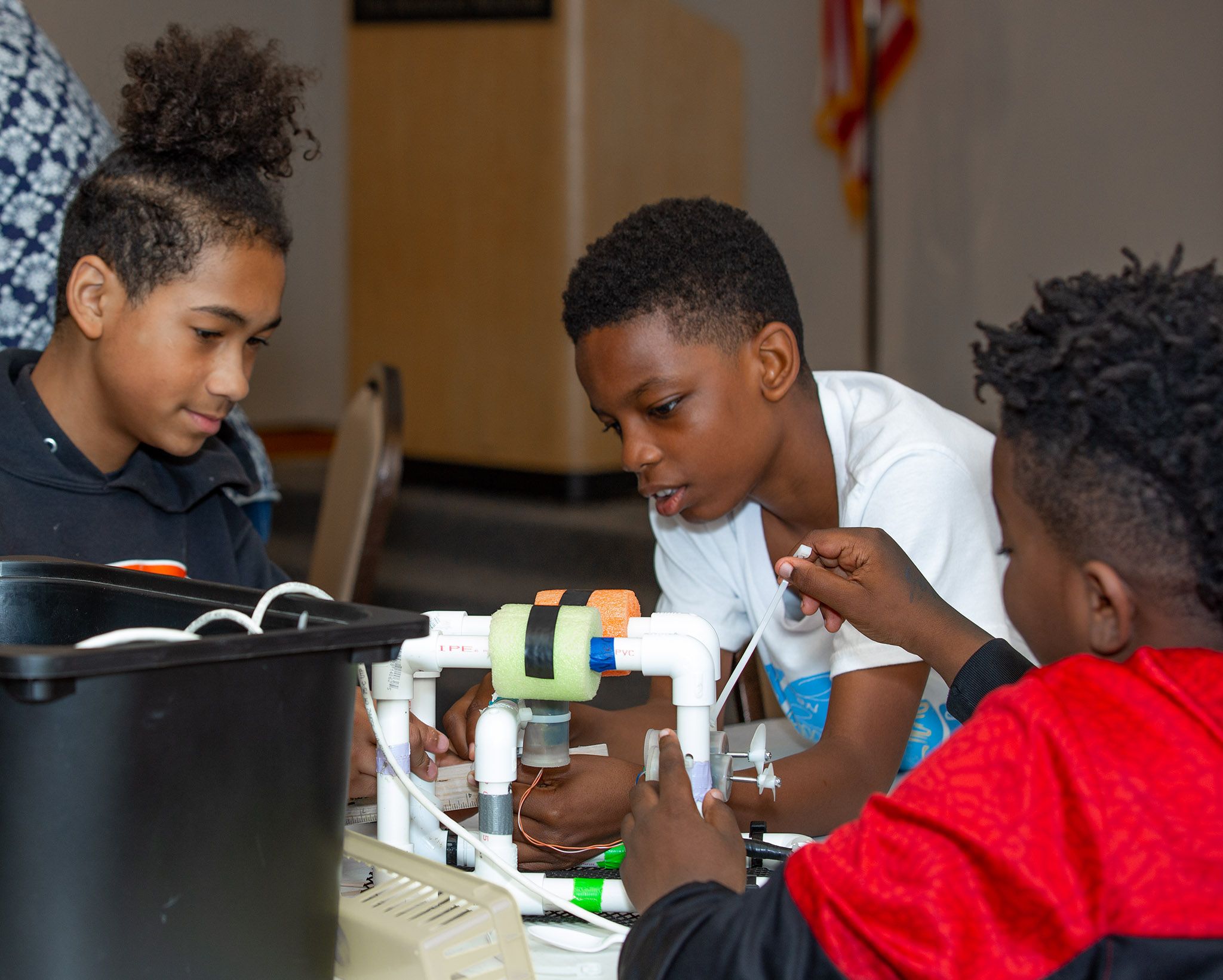
Whether we interact with our B-WET students, Underwater Robotics students, or any of the other environmental themed programs we offer, we always want students to gain new experiences and perspectives. Ultimately, we hope they will remember those moments and help to carry on the torch of environmental stewardship that starts in Hampton Roads.
